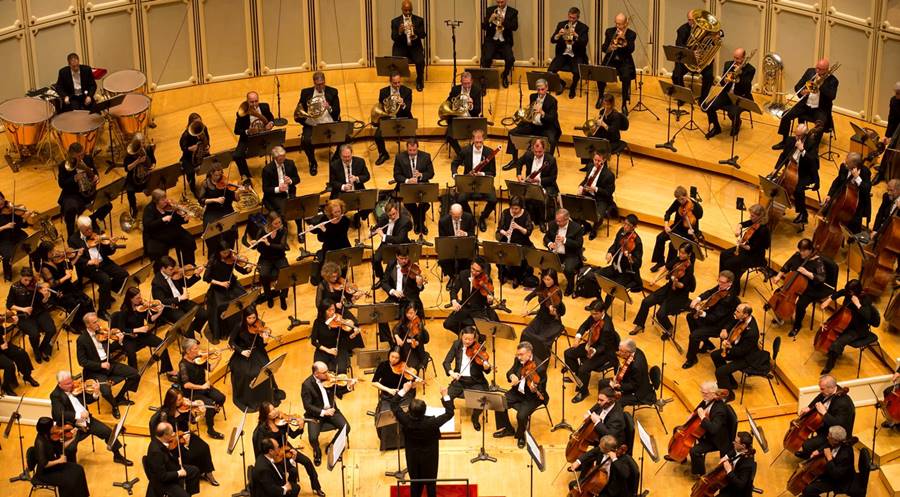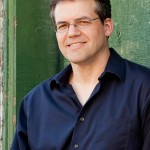
By Jae-Ha Kim
Chicago Sun-Times
May 28, 2000
When the Chicago Symphony Orchestra implemented its Musicians Residency Program two years ago, its goal was to build bridges through music. The CSO wanted to be accessible to folks who may never have attended orchestral performances before.
South Side resident Evanne Marie Christian wasn’t sure what to make of the brochure she received in the mail two years ago. The CSO was coming to her community, and it was offering music classes. Free.
“I was definitely curious about it,” Christian says. “But to be perfectly honest, I thought it all sounded too good to be true. I had heard of outreach programs where symphonies would come into communities and perform.
“But the CSO was offering the kind of outreach program that I had never heard of before–the kind where the community was invited to participate.”
Intrigued, the Hyde Park resident, along with other members of the South Side community, let the CSO know that they were interested in an interactive program.
“The community said, `We want a choir that’s open to everybody,’ ” says Christian, 46. “We wanted the classes, workshops and leadership that would make this a really good choir. Because we live in a primarily black community, we realize that we’re expected to just sing gospel music. This is fine to a certain extent, but we didn’t want to be ghettoized.
“We wanted to sing the best music available, whatever it was. We wanted to be representative of the excellence that the CSO is known for all over the world.”
For the past two years, the CSO Musicians Residency Program has placed the CSO and Chicago Symphony Chorus musicians in residence at the South Shore Cultural Center on the South Side, the Mexican Fine Arts Center Museum in Pilsen, People’s Music School in Uptown, as well as a handful of Chicago public schools such as Whitney Young, Curie High School, Kenwood Academy and Gallery 37’s Chicago Public Schools’ advanced arts education program.
The CSO isn’t alone in reaching out to residents who aren’t stereotypical highbrow classical music fans. Virtually every major orchestra has implemented a program of its own–the idea being that if you serve the community well, you’ll cultivate symphony patrons.
The New York Philharmonic serves second- through eighth-graders in nine public schools. The Boston Symphony Orchestra works with teachers and students in 10 Boston elementary and middle schools, emphasizing singing, instruments and the integration of music into the general curriculum. And the Pacific Symphony Orchestra in Santa Ana, Calif., serves more than 17,000 students, with schools adopting a Pacific Symphony musician who performs concerts and offers group music instruction.
For the CSO’s residency program, a staff of about 100 employees culled from the CSO, as well as musicians hired specifically for the residency program, keep the program running. About 7,000 Chicagoans benefitted from the program this season.
The residency program worked with a 1999-2000 budget of $672,000, which was split between the CSO and grants from various organizations such as the MacArthur Foundation. Next year, the budget has been expanded to almost $1.1 million.
“The CSO is definitely geared toward classical music,” says Lee Koonce, the CSO’s community relations director. “But we want to make music relevant to the communities and be respectful of the cultures that already exist. South Shore is our biggest residency program.
“The core group of people live on the South Side, but we have people coming from as far away as Lake Bluff to sing in the choir. That’s a source of pride–that people would be coming to their community to join in their programs. What we’re doing is not an outreach program. That implies a one-way relationship. What we’re doing is helping provide programs that enrich a community’s life with music.”
That may mean leading the South Shore choir in a rendition of Vivaldi’s “Gloria,” or marrying the CSO’s brass ensemble with a traditional Mexican folk ensemble in the residency program at the Mexican Fine Arts Museum Center.
“When the CSO approached us about a partnership, they said they wanted to target the Latino community in Chicago,” says Lydia Huante, education director at the Mexican arts center.
“When you think of the CSO, you think of classical music. And our community knows about classical. But sometimes you feel a little distant from classical if you haven’t had the training or the opportunity to hear an orchestra live. So we thought, `What if we reintroduce the idea of classical music by offering a vehicle of popular music that’s relevant to people’s lives?’ “
So the CSO performed concerts at neighborhood churches and schools. But the brass ensemble collaborated with a band with which the community was already familiar–Sones de Mexico. Ricardo Lorenz, 38, who has been in the residency program since its inception, composes and arranges the pieces that are performed. Though not a member of the CSO, he got his gig at a symphony concert.
“I brought my students to hear the Civic Orchestra perform about 2 1/2 years ago–just before the residency program was implemented,” says Lorenz, who teaches music and humanities at Richard J. Daley College. “By coincidence, I happened to be sitting next to Lee Koonce, who noticed that I was older than the students I had brought. We started talking about what the CSO was trying to accomplish and I was hooked. The idea of bringing together two different cultures for the love of music was something that I supported.”
Adds Huante, “I love the dynamics of this partnership. I love watching the CSO musicians getting into the music and playing along with the Mexican musicians. Their creations really are a labor of love.”
The CSO’s Musicians Residency at the Mexican arts center has also included musical activities for the students at the Yollocalli Youth Museum–an arts education/career training program for children 14 to 19 years old, and WRTE-FM (90.5), MFAMC’s youth-operated, community public radio station. One of the radio programs is a weekly radio show about classical music emphasizing Mexican and Latin American composers.
Karen Deschere, the executive director of the Symphony Chorus, says once people get past their initial feelings of intimidation, they enjoy the CSO.
“There are a lot of people who have musical talent who don’t have training,” Deschere says. “And that’s what we’re there for. We show them how to follow music if they don’t know how to sight-read. I have a music education background, so the residency program has been a great way for me to get involved in a grass-roots way.”
More stars are getting involved with the residencies these days. For instance, when Bobby McFerrin was in town for a five-night stint with the CSO, he popped over to the South Shore Cultural Center for a performance, which he followed with a master class and workshop.
“The wonderful thing about this program is that you don’t have to have any experience or even have great musical talent,” says South Shore choir member Christian. “And I think that it does help people feel really connected with the CSO because a lot of people think, `Oh, it’s not really part of my world.’ But what’s happened is that the doors have opened.
“When [CSO President] Henry Fogel came to our meeting two years ago, he said that the CSO wasn’t for just rich white people, and that if they expected the community to be involved with them, they had to be involved with us. The children who are involved in the program will never know a time when the CSO wasn’t a part of their lives. Of all the other temptations they have out there, here they are showing up every week singing and learning about music. That is the next generation.”
For more information about the CSO Musicians Residency Program, call (312) 294-3808. Or contact the centers involved at: South Shore Cultural Center, 7059 S.South Shore Dr. (312-747-2536). Mexican Fine Arts Center Museum, 1852 W. 19th (312-738-1503). People’s Music School, 931 W. Eastwood (773-784-7032).
Season ends with concert: The CSO Musicians Residency Program ends its second season with a free concert at 2 p.m. Saturday at the South Shore Cultural Center. The concert will be followed by a free picnic on the lawn. For more information, call the CSO Residency Hotline at (312) 294-3808.





